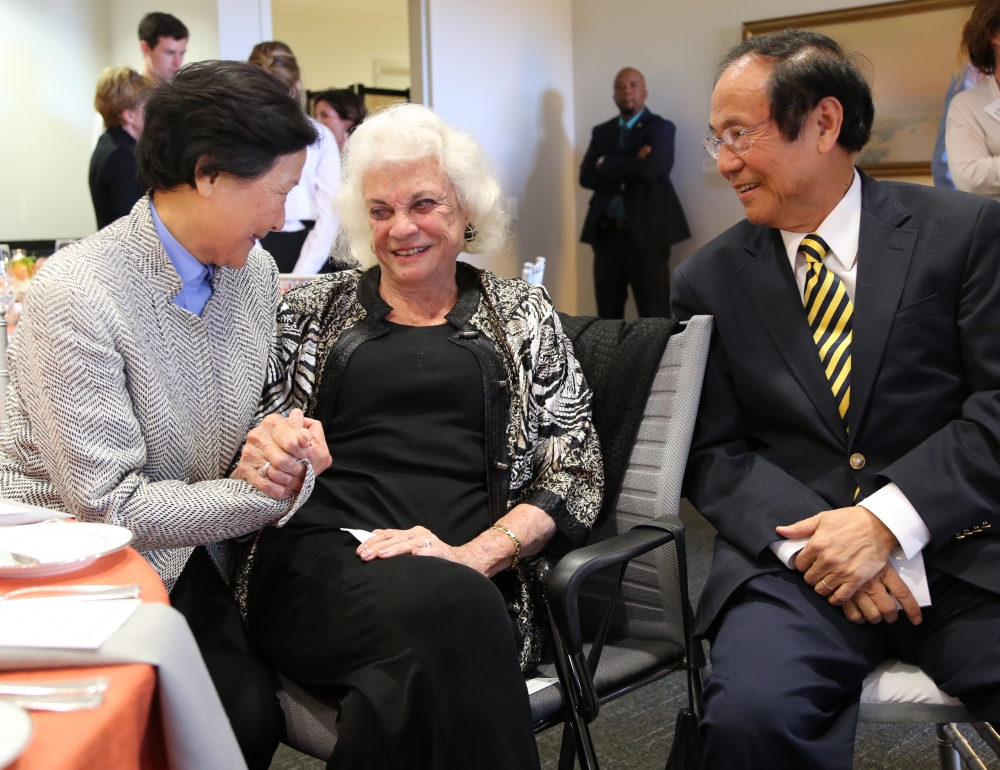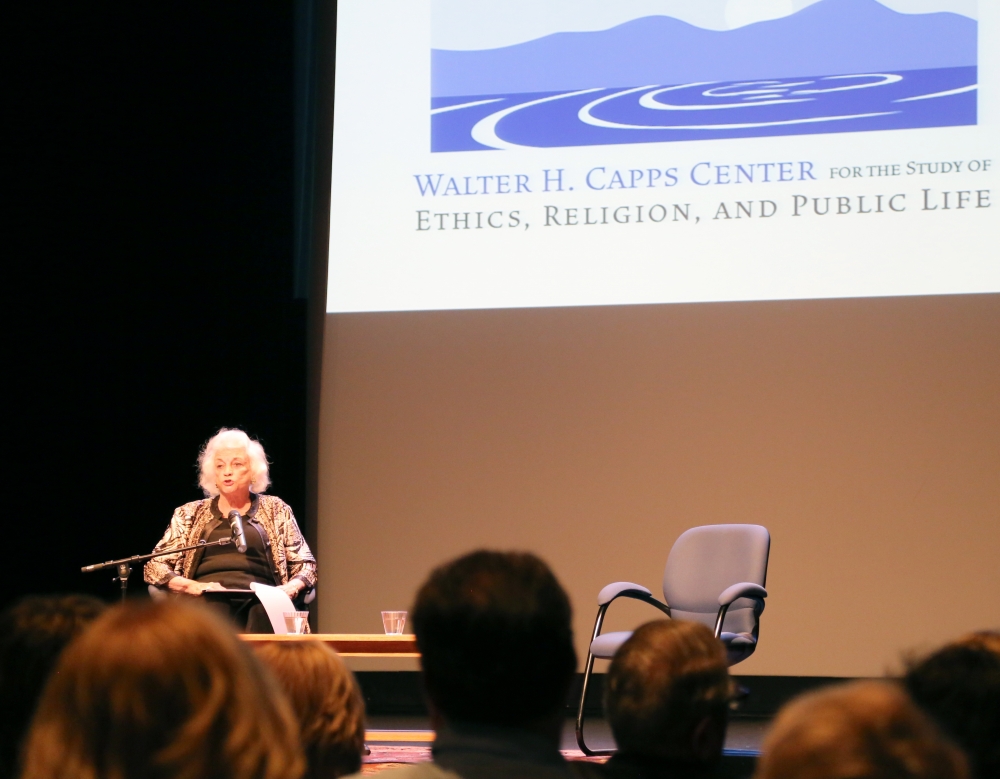Securing Democracy for Future Generations
The statistics are somewhat staggering. According to recent assessment tests, only 7 percent of eighth-graders nationwide can name the three branches of government. Only a third can name a single United States Supreme Court justice, and among high school seniors, less than one-fifth can explain how citizen participation benefits democracy.
These numbers don’t bode well for the making of an informed citizenry, and Sandra Day O’Connor finds them more than a bit disconcerting. “Our society at present suffers from an alarming degree of public ignorance when it comes to the way our government is structured and how it works,” said the U.S. Supreme Court associate justice who retired from the bench in 2006.
The first woman appointed to the Supreme Court, O’Connor served for 25 years.
“Less than one-third of eighth-graders can identify the historical purpose of the Declaration of Independence,” she added, “and it’s right there in the title.” O’Connor spoke to a nearly packed house at UC Santa Barbara on Saturday, May 10. Her talk, “Educating for Democracy in the Digital Age,” took place in Campbell Hall. It was free and open to the public.
A question-and-answer session followed, moderated by Clark Roof, the J.F. Rowny Professor of Religion and Society and director of the campus’s Walter H. Capps Center for the Study of Ethics, Religion, and Public Life. The Capps Center sponsored O’Connor’s visit.
“It was a fabulous opportunity for UCSB and the community to have Justice O’Connor with us,” said Roof. “Her depth of judicial experience gives her an unusual historical perspective on the Supreme Court, which she shared with us. Plus, her more recent commitment to civics education through the iCivics organization she founded is inspiring as she seeks to teach civics in a digital age. Many of us who heard her or exchanged views with her in the question-and-answer period will remember the moment.”
Civics, O’Connor argued, is the long-term solution to preserving an independent judiciary and to maintaining a robust constitutional democracy. “We have to do better,” she said, referring to civics education in the elementary and secondary grades. “While the seeds of that ignorance are planted in the earliest years of a child’s education, too often it’s left unaddressed all the way through college and even graduate school.”
Since her retirement, O’Connor has made it her mission to bring back civics education. Working with experts in law, education and technology, she helped create iCivics, a web-based education project that offers an array of free interactive games and activities for students. The games place students in different civic roles and give them an opportunity to address real-world problems and issues.
Rooted in clear learning objectives and integrated with lesson plans and support material, iCivics enables students to gain foundational knowledge about democracy, how it works and how it can be used to solve actual challenges that they might face.
The project has received the American Library Association’s award for the Best Websites for Teaching & Learning. The award recognizes websites that foster qualities of innovation and creativity, active participation and collaboration.
“It’s an exciting resource that includes video games, lesson plans and online simulations for student engagement,” O’Connor explained. “And this, I must say, is the most important work I’ve done.”
According to O’Connor, 6 million students visited the site in 2011, and three years later more than 65,000 teachers are registered on iCivics. “For young students in elementary and junior high school, one of the best ways to educate them is by embracing the digital age. Technology can be used effectively to help students learn to be better citizens, and to engage in civil discourse,” she said.
“Democracy is a sustained conversation among our citizens — how best to govern ourselves,” O’Connor continued. “But people can’t effectively participate in that discussion if they aren’t somewhat fluent in the topic.” The public school system has to prepare young people to become knowledgeable citizens to ensure that our democracy will progress and function as it should with vibrancy and intelligence, she said.
“Not everyone is going to grow up to be a Bill Gates or a Sheryl Sandberg, but everyone is going to grow up to be a citizen,” O’Connor commented. “And by design, government and our democratic process belong to each and every one of us as citizens. For our system of government – our democracy — to endure, we have to be sure our population is well informed and prepared to face some tough challenges.”
Noting that democracy “is not a spectator sport,” O’Connor referenced Thomas Jefferson’s notion that our government is not of the majority, but rather of those who participate. “And developing the leaders of tomorrow takes patience, passion, resources and civics education,” O’Connor said. “So much is riding on our success and failure. We want to secure our democracy for generations to come.”





